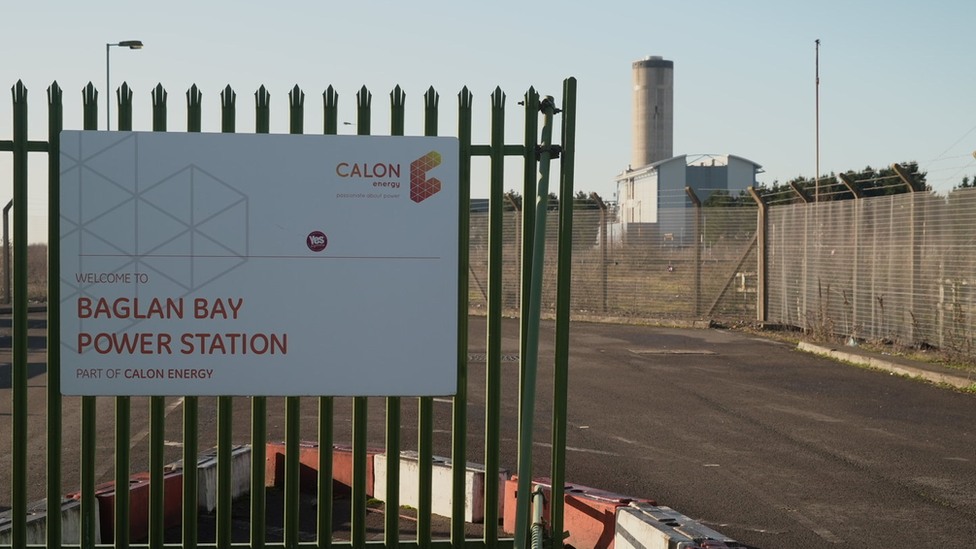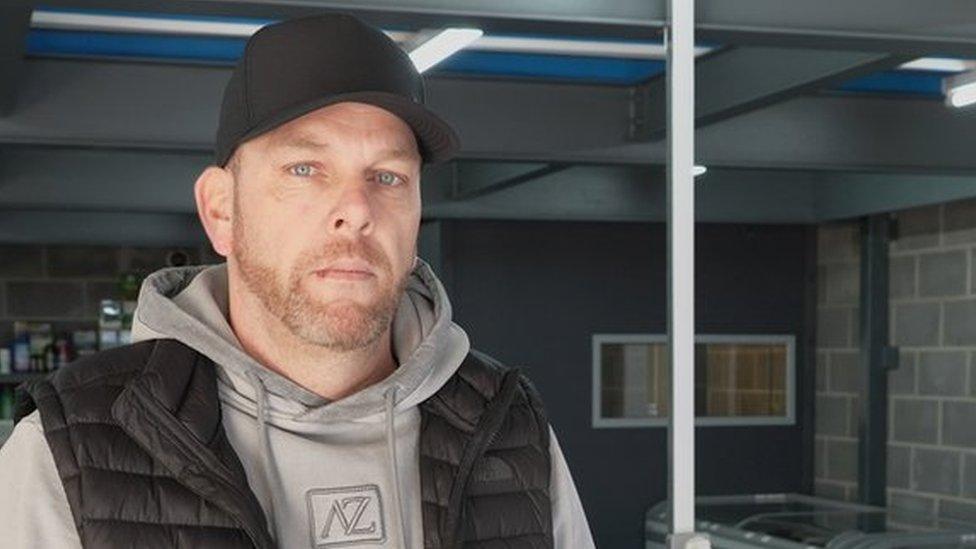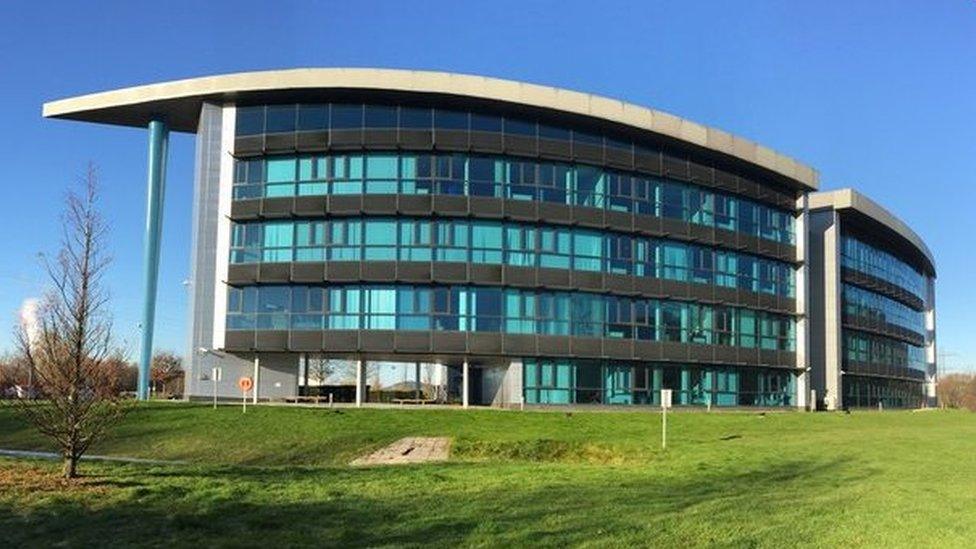Baglan Energy Park: Court hears jobs and flooding concern if power lost
- Published

A court has heard 328 paper mill jobs could be at risk and the site could flood if power is switched off at a Baglan business park.
Operations at Baglan Energy Park's on-site power station are being wound down after its operator went bust.
Welsh ministers have asked the High Court for an injunction, warning that switching the site off before alternative power is connected could have catastrophic consequences.
The hearing continues on Tuesday.
The Official Receiver had previously agreed to maintain supplies while the legal action takes place.
The Welsh government agreed to fund a new electricity supply, but the High Court heard that it could be as late as the summer before a new connection to the National Grid is established.
Around 1,600 are employed on the industrial estate.
The Welsh government along with Neath Port Talbot council, Dwr Cymru/Welsh Water and paper mill firm Sofidel, have jointly applied for an injunction to prevent power being disconnected.
'Risk to life'
Ian Rogers, representing the Welsh government and other parties involved in the case, said businesses and facilities on the site faced having to switch to generators without on-site power.
But he echoed concerns from Welsh Water, which has a sewage pumping station at the park, that generators are inherently unreliable, particularly in storm conditions.
Citing the "red" warning storm last Friday, Mr Rogers said: "We never know what might have happened if these pump assets were running on generators".
Among the facilities impacted is a surface water pumping station operated by Neath Port Talbot council. The court heard the surface water would "otherwise flood local residents" including the neighbouring Sandfields area.
The court was told that there would be an "immediate" risk to life if there was a storm and the generators failed.
Mr Rogers also said that Sofidel, a large paper mill on the site, could have to close its factory with the loss of 328 jobs.
He said the firm faces the "terrible choice" of ceasing trading at the site - to continue with generators or close the factory if Sofidel take the view they cannot take the risk of causing pollution.
The barrister told the court that Sofidel was concerned that power from the generators would not be stable.
Related topics
- Published12 January 2022

- Published14 January 2022

- Published13 January 2022
